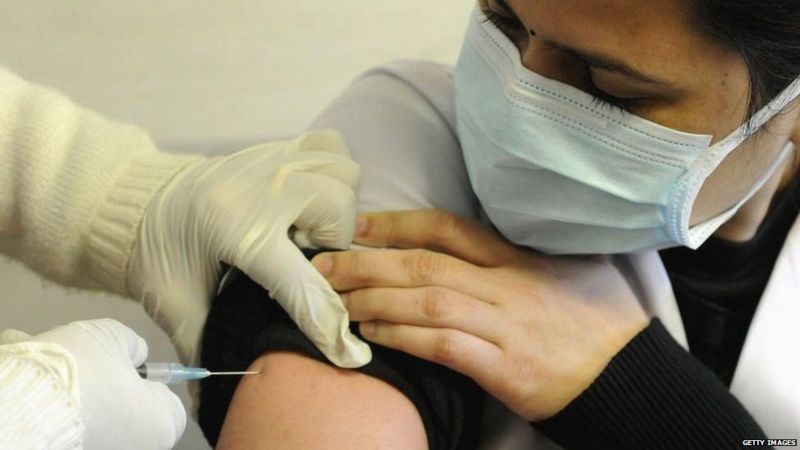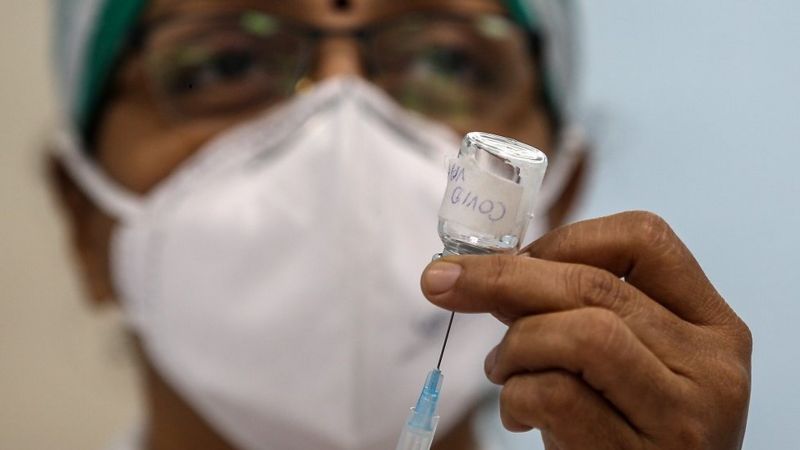
Corona: Will Indian Vaccine Manufacturers Meet All Demand?

India produces 60 percent of the vaccine produced worldwide, but after America, the highest number of cases of Covid-19 have also come in this country.
India not only has to vaccinate its people but also has to fulfill its commitment to other countries of the world. Can India meet this demand?
How many vaccines can India produce?
Two vaccines have been approved in India right now – Kovishield which is making Oxford and AstraZeneca and the other one is Kovaxin.
Some other vaccines that are currently undergoing trials are also being produced in India.
India’s pharmaceutical companies have stepped up production in recent months. According to Serum Institute of India, which is the largest producer, according to them, they can produce 6 crore to 7 crore vaccines every month.
According to Bharat Biotech, they can produce 200 million vaccines in a year, although they currently have only 20 million doses of cocaine.
Other companies whose vaccine is undergoing trials are also talking to Indian authorities and other countries, so that the vaccine can be supplied when it is ready. Although there is not much information related to them.

How much does India need?
The Government of India has said that it will give vaccines to 300 million people by the end of July. The vaccination program will start from January 16 and vaccine will be given to the frontline and healthcare workers first. There is a plan to vacate 60 crore people in seven months, that is, about 8.5 crore doses every month.
What will be India’s role in the world?
The Serum Institute of India is part of the Kovacs Scheme supported by the World Health Organization. Its purpose is to make vaccines available to middle income countries.
In September last year, the Serum Institute had promised to provide 200 million doses under this scheme – it could be the Oxford-AstraZeneca vaccine or the US Novax dose.
Chief Executive of Serum Institute of India Adar Poonawala told that this agreement could be increased to 90 crore doses.
If this happens, the commitment of Serum Institute of India will be 1 billion doses.
The company said that it is their effort to increase production to 10 million doses per month.
In addition to the Kovacs scheme, the Serum Institute of India has entered into bilateral commercial deals with several countries to supply the Oxford-AstraZeneca vaccine.
Poonawala said earlier this month that the vaccines were approved on the condition that they would not be exported, but according to him, this was an illusion.
After Bangladesh expressed concern, the Indian government later clarified that exports would be allowed, a deal with Bangladesh to get 3 crore initial doses.
A Foreign Ministry official told that India, “as the world’s largest vaccine manufacturer, is fully conscious of its commitments to neighbors and the rest of the world.”
Apart from this, the company has also made deals with Saudi Arabia, Myanmar and Morocco. Although how much vaccine, how long they need, it is not clear yet.
There are reports that Nepal, Brazil and Sri Lanka may also show interest in vaccines made in India. But Poonawala has said that his priority will be to meet the domestic demand.
“Once we meet the initial requirements, then we will soon start exporting it to other countries.”
A spokesman for the global vaccine alliance Gavi, who is helping to run the Kovacs scheme, told that they are in regular contact with both Indian authorities and the Serum Institute of India.
He said he is “confident” that there will be no delay in commitment to Kovacs.
Virologist Dr. Shaheed Jameel explains that the Kovacs plan is an international obligation, which would also not be good if Indian companies prohibit bilateral deals already agreed with other countries.
He said that given the current availability, “I am not worried that there will be a shortage of vaccines in India”
According to him, “the hindrance will be how fast we actually vaccinate people”
Another potential bottleneck is the availability of glass vials used for vaccines. There are concerns around the world that there may be a shortage of vials.
However, according to the Serum Institute of India, he has not yet faced any such shortage.



